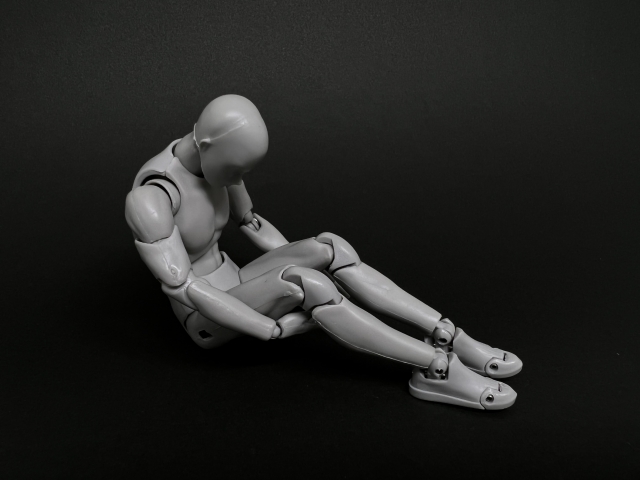
『Passive aggressive behavior』 that exhausts the surroundings with negative actions when it becomes 『dissatisfied』
What do you think passive-aggressive behavior is?
In Japan, mental abuse is called morahara(moral harassment).
Passive-aggressive behavior is just moral harassment.
However, there is no clear indication of intention to the other party, such as direct abusive language, pointing out trivial matters, or forcing an opinion.
Passive-aggressive behavior is characterized by frequent ignoring, clicking, fussing, sulking, sarcasm, gossiping, complaining, complaining, laziness, and circumnavigating without asserting one’s point of view. behavior that exhausts the other person (or the people around them). . Case.
It is difficult to understand what the other person is thinking, what they are angry about, or what they are dissatisfied with because their intentions are not clearly communicated.
As a result, passive-aggressive behavior becomes more pronounced, the atmosphere of argument and reconciliation disappears, and the atmosphere deteriorates.
If someone close to me was doing this every day, it would be pretty exhausting.
Spend your days filled with a sense of blockage, and as a result, your heart may get sick. At work, productivity declines, and at home, we are forced to consider divorce.
This time, I will introduce people who can’t stop such moral harassment.
- Passive Aggressive Personality Disorder (PAPD)
- Causes of Passive Aggressive Personality Disorder (PAPD)
- How to deal with moral harassment caused by PAPD
- If you have a family member with Passive-Aggressive Personality Disorder (PAPD)…
- If someone at work has Passive-Aggressive Personality Disorder (PAPD)…
- In case of malicious moral harassment
- summary
Passive Aggressive Personality Disorder (PAPD)

As mentioned earlier, if you become dissatisfied, you will frequently ignore, click your tongue, make noise, be in a bad mood, be sarcastic, gossip, complain, and complain.
It is “passive aggressive behavior” that confuses and exhausts the other party (or surroundings) with such negative actions.
People with Passive-Aggressive Personality Disorder (PAPD) are those who regularly engage in these behaviors.
Surely every human will complain.
But
Ordinary people will attempt some action to resolve their grievances. For example, directly express your opinion to the other party, discuss, or consult with someone.
Many people would deal with it that way.
But for those with PAPD, such a response is extremely difficult.
For them (her), passive-aggressive behavior is like a defensive instinct.
In other words, it is not a rational action to resolve a dissatisfaction, nor is it a deliberate (or calculated) action in pursuit of profit or superiority.
Why …? Why do you act like that?
The reason lies in the background of those with PAPD.
Causes of Passive Aggressive Personality Disorder (PAPD)

for example
・”Corporal punishment” and “abuse” by toxic family members
・”Bullying” and “malicious school caste” at school
・ Intended to be a friend relationship, but actually a master-servant relationship
I can’t express myself honestly in such an environment. As a result, they learn to endure more than they need at a young age and abandon assertiveness.
Specifically, it seems that it is caused by a living environment where if you feel dissatisfied and object, you will be returned with [violence, verbal abuse, criticism, reprimand, tantrum, insult], etc. Of course, if you are restricted like that, you will lose the will to assert yourself and become depressed.
Underlying behavioral psychology is fear, anxiety, and annoyance that if you assert yourself, you will be counterattacked. As a result, it becomes troublesome to make claims, and what is even more troublesome is that you fall into a dependent way of thinking: “If you are going to be denied anyway, let’s leave it to others.”
However, even if it is left to others, dissatisfaction still comes out. So I want to release this frustration in some way.
They want to release it. But they are unable to express themselves calmly and logically.
A frustration that rises between fragile self-esteem and true intentions.
After going through this kind of dilemma, it has become the nature of “showing with attitude“.
Thus, PAPD appears to result from over-restriction of ‘anger’ and ‘frustration’ during development (or in particular childhood).
Therefore, it may not be an exaggeration to say that it is a kind of self-preservation instinct for them.
How to deal with moral harassment caused by PAPD
Ni_photo.jpg)
Passive-aggressive behavior is nothing more than moral harassment for the victim.
However, for those with PAPD, passive-aggressive behavior (morahara) is like a defensive instinct that works when trying to deal with frustration.
Basically there is no “malice”.
In other words, it is better than the moral harassment emitted by evil personalities such as antisocial types (psychopaths and sociopaths) who aim for “profit” and “vicious superiority” (psychopaths and sociopaths) and self-love types (narcissists). ……There are individual differences, so I can’t generalize.
The surest way to do it is to not let them feel “dissatisfied”. But that’s silly. I can’t do that kind of care on a daily basis.
Here are some tips for coping with moral harassment. *This is just a way to deal with moral harassment caused by PAPD type (passive-aggressive personality disorder or similar).
If you have a family member with Passive-Aggressive Personality Disorder (PAPD)…

・Let’s repeat how unpleasant moral harassment is. PAPD types are not devoid of ethics or morals, so they are valid in some cases.
・Record or record the scene and show (play) it to encourage reflection. If it is malicious, it can be used as evidence to proceed with the divorce, so please keep it in a safe place.
・’What do you think you should do? ’, let’s ask like that. The goal is to give them a degree of control so that they can take responsibility for their actions and change their dependent ways of doing things.
・Do not react to moral harassment. PAPD-type passive-aggressive behavior is, after all, the behavior of a person who has not fully grown up. It’s like a child’s rebellious period. Think of it that way and respond accordingly.
・Let’s recommend counseling (Let’s induce). Naturally, the knowledge and persuasiveness of ordinary people and professional counselors are completely different. It’s probably the best course of action.
If someone at work has Passive-Aggressive Personality Disorder (PAPD)…

At work, it can be handled more reasonably (depending on the company).
Passive-aggressive behavior (morahara) by PAPD type is childish, dependent, impulsive, and self-destructive behavior that simply wants to vent “dissatisfaction” and “anger.” Therefore, there is no way that such a person is evaluated within the company.
In other words, you should be slacking off on a daily basis, complaining frequently, gossiping behind your back, and delaying work, so collecting evidence should be relatively easy.
Gather those pieces of evidence and present your boss with actual damage estimates and losses. And if the boss is no good, go to human resources. If the company is normal, there should be some kind of disposition.
If the company does not respond, consult with the labor union, labor standards inspection office, lawyer, etc.
In case of malicious moral harassment

The above-mentioned coping method is only a countermeasure against moral harassment by PAPD type, and it is when the perpetrator has room for rehabilitation and the damage is relatively minor.
However, please consider legal action for serious moral harassment, such as that caused by dangerous personalities (psychopaths, sociopaths, narcissists, etc.).
This is because the possibility of mental disorder and worst, suicide is also considered.
In that case, it may be possible to claim compensation for damages (both at home and at work).
However, what is needed is “evidence”.
You have to prove the moral harassment act to a third party.
I feel bad about securing the evidence; But if there is evidence, it is advantageous when claiming divorce or alimony.
Specifically, you should routinely collect emails, documents, instructions, remarks, consultation records, images, sounds, and text data from SNS.
It is also helpful to keep a diary of your daily events. Also, if you feel unwell due to moral harassment, please consult a medical institution and have a medical certificate issued. *Medical certificate is very important
summary

Although the danger is not so high, the moral harassment caused by the PAPD type is accompanied by a strong sense of blockage. For some reason, people with PAPD also instinctively develop such behavior, but if left alone, it will only increase mutual discomfort and the situation will not improve at all. Take a step towards improvement.

